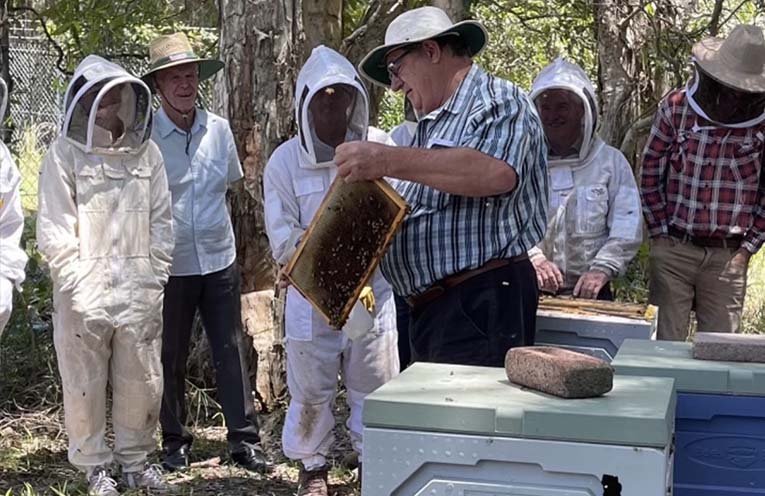
COMPENSATION for the destruction of hives and bees infected by varroa mite, is being awarded to recreational beekeepers under the agreed National Response Plan.
Coffs Harbour beekeepers who are within 10 kilometres of last week’s outbreak of Varroa mite, detected off Bucca Road in Nana Glen, north of Coffs Harbour, are currently in a biosecurity red zone.
 Advertise with News of The Area today.
Advertise with News of The Area today.It’s worth it for your business.
Message us.
Phone us – (02) 4981 8882.
Email us – media@newsofthearea.com.au
The National Working Group has agreed to a $550 payment for each recreational hive destroyed to control the mite outbreak, or $200 for those who wish to keep their hive ware, which will cover the cost of the euthanised bees.
Recreational beekeepers are those who are “doing it for fun, for domestic use” rather than running their beekeeping as a business.
Coffs Coast Beekeeper, Glenn Locke, who owns Orara Valley Honey based in Nana Glen, told News Of The Area, “The compensation encourages beekeepers to come forward and do the right thing – $550 if they destroy a whole hive and $200 if they only destroy the bees, is pretty generous.
“There is an expectation for compensation … the problem is, if you don’t, people might choose to hide their hives,” he said.
Agriculture Minister Dugald Saunders said, “More and more people are trying their hand at beekeeping in their backyard, which is why we’ve always seen hobbyists as critical to our eradication effort right from the start.”
A $200 reimbursement will also be given for each single nucleus hive that is euthanised, regardless of whether the hive ware is kept.
A new Biosecurity Emergency Order has been issued to allow beekeepers in the red eradication zones to work their hives to prevent swarming and remove honey supers in the 48 hours before their bees are euthanised.
“As the weather gets warmer in the lead-up to spring, it is the peak time for bees to scout out a new home, once their hives become full of honey,” Mr Saunders said.
“Swarming could exacerbate the outbreak and that’s why the new order will allow people to place an empty honey super on the hive to deal with these concerns.”
Those in the red zone who wish to harvest their honey will be subject to strict conditions.
“Anyone who has moved their hives out of a known biosecurity zone in the last 12 months should immediately contact the Exotic Plant Pest Hotline to notify DPI of the current location of those hives,” said Mr Saunders.
Only registered recreational beekeepers will be eligible for the reimbursement package and DPI is working with beekeepers and Industry to finalise the application and payment process.
For more information, visit the NSW DPI website: www.dpi.nsw.gov.au/varroa
To report the location of your hives call the Exotic Plant Pest Hotline on 1800 084 881.
By Andrea FERRARI
